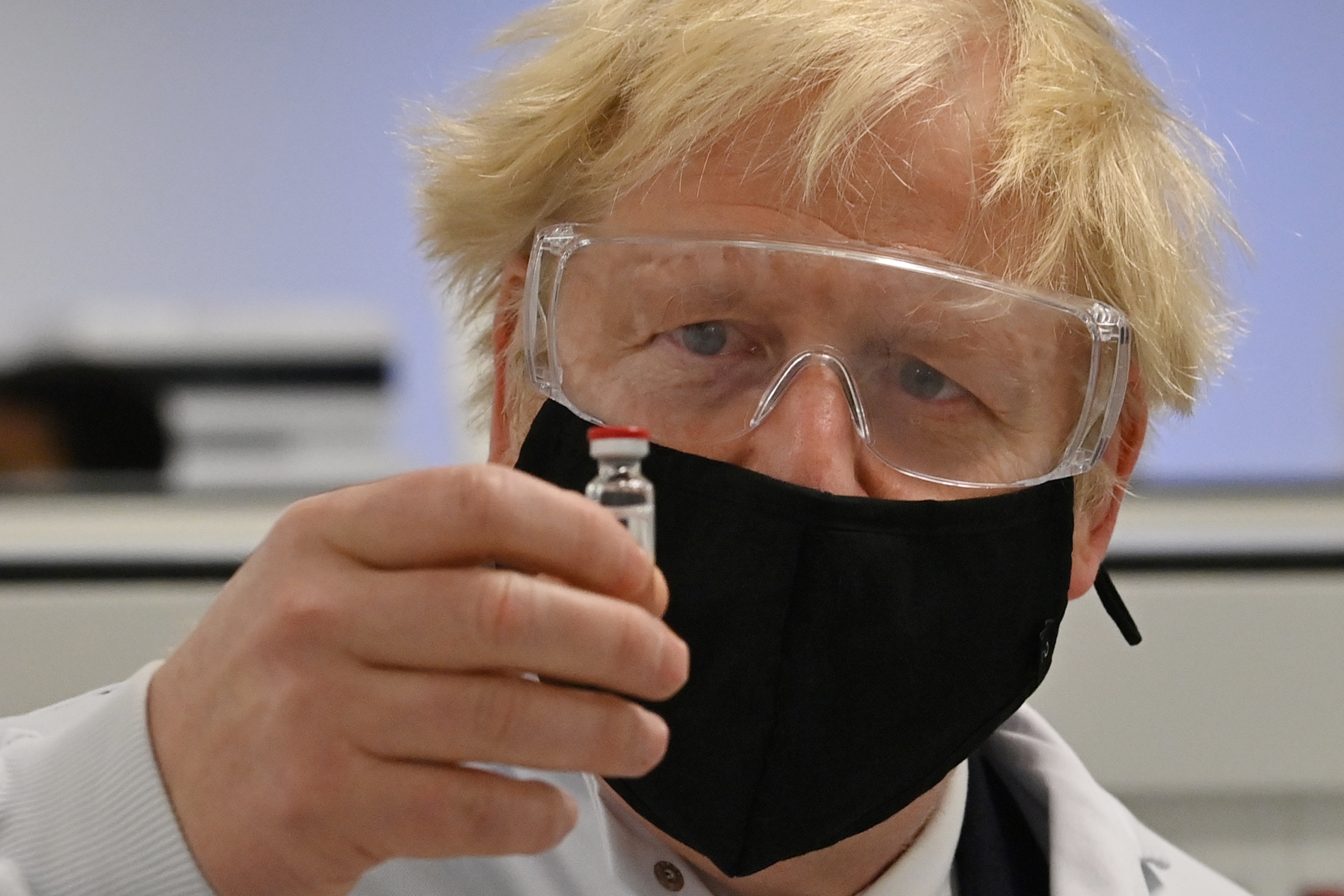Brexit and the ‘vaccine war’ between Britain and the EU
A lack of trust after four years of tense, fraught negotiations have created a perfect environment for immoral, counterproductive vaccine nationalism, writes Sean O'Grady


What are to make of the “vaccine war” between Britain and the European Union?
The underlying problem would seem to be a lack of trust, entirely comprehensible given the history of Brexit. Chauvinism and suspicion seem to be driving public pronouncements and policy on vaccine procurement. A ridiculous race has been set up, in the minds of some, between the UK and EU to see who can vaccinate their populations fastest. Britain has reached 10 per cent, continental Europe 2 per cent. This, absurdly, has been used to justify Brexit, leaving aside Britain’s grim record on deaths from Covid. If this cross-Channel competition has the effect of spurring on efforts it might have something to be said for it, but it seems unlikely given that supply is a constraint everywhere. What’s more, the coronavirus does not respect national borders; if it is raging in France it will not remain there. Tempers have flared, as with previous skirmishes over the closures of borders, supermarket deliveries to Northern Ireland, fish (inevitably) and a lorry driver who was upset to find his ham sandwich impounded at the Hook of Holland (“Welcome to the Brexit, sir”).
The truth about vaccines is prosaic, if a little troubling. Having placed an order in good faith for 300 million doses of the Pfizer-BioNTech vaccine, on behalf of member states, the EU Commission was informed that the company was having to reduce production temporarily to expand capacity, and deliveries would be late. It is also reported that the commission got mixed up about the sequencing of orders.
After that mishap, the EU was then faced with further supply difficulties with the Oxford-AstraZeneca vaccine, so the frustration was quickly doubled. The EU was behind the UK in placing orders for this jab, which was financially supported by the British government. The European Medicines Agency also took a few more days to approve the AstraZeneca and the Pfizer vaccines for use. Arguments between member states and Brussels about bureaucracy and blame have added to a tense atmosphere.
Faced with such a formidable challenge, the EU commissioner for health, Stella Kyriakides, hit out at AstraZeneca, a UK-Swedish company, about “lack of clarity and insufficient explanations”. The vaccine is made in Britain, and, in an act of retaliation or to safeguard Europe’s citizens (take your pick) Ms Kyriakides says that exports from the EU to the UK and other third countries of the Pfizer vaccine (made in Belgium) will require EU Commission approval. Thus far the British have not upped the ante by limiting access to the Oxford vaccine.
So much for frictionless trade. Behind the Brexit-tinged recriminations lies a simple truth, which is that British people having a European-made jab, and Europeans being injected with a British vaccine are in the same boat as everyone else in the world using the various Russian, American, Chinese and other inoculations – vast demand and supply and logistics struggling to keep up. Production snags in scaling up to protect the planet’s human population are really only to be expected; the miracle is that any vaccine exists barely a year after the disease was identified. Sometimes the dynamics will hit some countries harder than others, just as they did with ventilators, protective equipment and test and trace systems last year (in none of which was the UK a world leader).
This is a pandemic in which “Covid-19 anywhere is Covid-19 everywhere”, as Borge Brende, president of the World Economic Forum, told the virtual conference in Davos. The real failure of vaccination is not in the EU, Britain, America or anywhere else in the developed world where vaccines are coming on stream, but in the global south, where hundreds of millions have no realistic chance of any vaccine this year and possibly longer. It is in their sick bodies that fresh vaccine-resultant, more infectious and more deadly mutations of the virus will evolve and, in due course, make their way to the rich countries. Borders cannot be hermetically sealed; even North Korea has Covid. At that stage, when new variants pass through an airport in Europe or America, the saga of lockdowns and straining health systems and the task of developing vaccines will start all over again. That is why vaccine nationalism is not only immoral but counterproductive.
Join our commenting forum
Join thought-provoking conversations, follow other Independent readers and see their replies
Comments
Bookmark popover
Removed from bookmarks